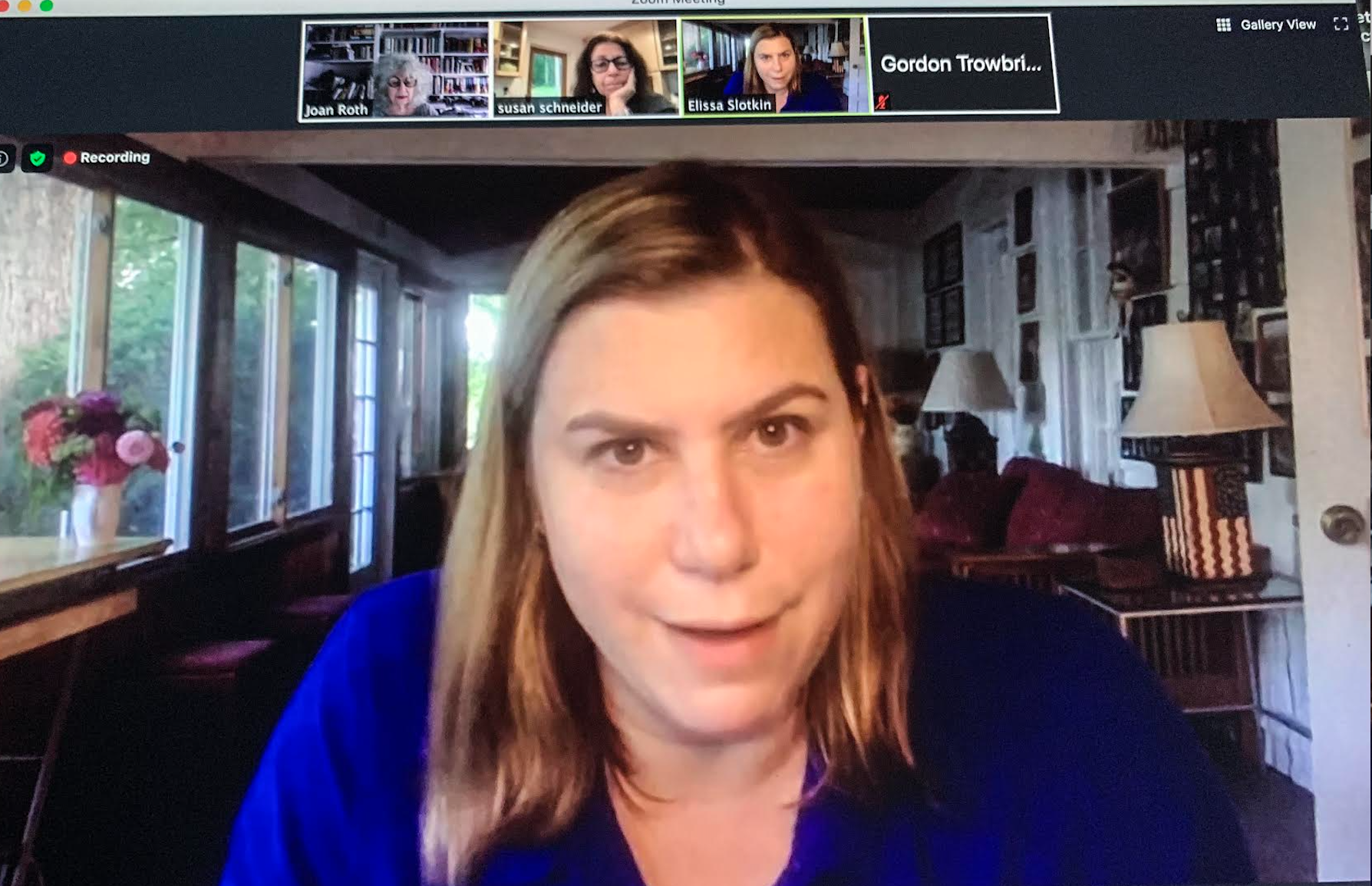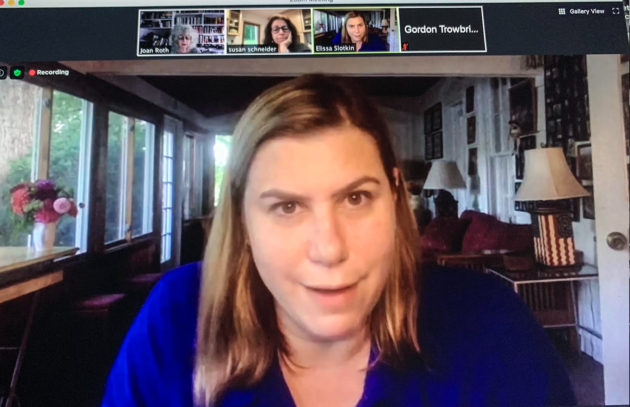
Elissa Slotkin: How 2020 Looks from the Midwest

Representative Elissa Slotkin, the Democratic incumbent Member of Congress representing Michigan’s 8th District, is running a race to watch in 2020: Even Politico has profiled her in a series of articles because her district is “the sort of place Republicans figured to rule forever, the sort of place Trump won comfortably (by 7 points, to be exact) and the sort of place where a suburban realignment to the left could ensure not only a Democratic grip on the hard-won House seats of 2018 but a Joe Biden blowout across the battleground map of 2020..”
Slotkin, with multiple cultural and political tightropes to walk and a formidable political savvy, is also a former Lilith cover star. With the election, the pandemic, and the rise of white supremacy weighing heavily on everyone’s minds, Lilith’s Editor in Chief, Susan Weidman Schneider, and photographer, Joan Roth, hopped on Zoom with Slotkin to talk about some of the most intense topics of 2020.
Lilith: The “Proud Boys” are new to national consciousness–but you’ve been dealing with them for a while.
Representative Slotkin: They’ve protested in my town, Lansing, Michigan, and in many, many towns around here. They’re very open, they’re wearing motorcycle vests that say Proud Boys embroidered on the back. They’ve even provided security at some Republican events!
One of the things that I’m worried about is that the president though his leadership has fomented a lot of folks who are ready to take up arms at his suggestion. People who have seen their views normalized by the commander in chief. So to be a Jewish candidate running right now, in 2020, is very different from the last time I saw you, in 2018.
Lilith: What has been different? How have you experienced antisemitism?
E.S.: There’s a normalization of hate, a permissiveness around antisemitism that has grown, so that people commenting on Facebook pages are alluding to my being a Jewish candidate. There are memes being put out by the man I’m running against that are for me really right on the line of antisemitism, with me holding money bags and Slotkin spelled with a dollar sign.
My opponent will not denounce the Proud Boys. He will not denounce these hate groups. It’s one of those things where you know if the ADL and the Southern Poverty Law Center label you a hate group it should be really easy for any candidate around the country to denounce that hate, especially now, and the fact that they won’t shows how normalized and how concerned they are about not offending those folks.
Lilith: How has this affected your Jewish supporters?
E.S.: In my district, I have about 4,000 Jews, a small Jewish community of East Lansing. The majority of Jewish Michiganders are closer to Detroit than I live, I live on my family farm. I grew up in the Jewish community of suburban Detroit, my parents still live here, so we have really strong ties. They all think of me as their daughter. Right before Covid. I brought in the Attorney General, I brought in some senior FBI folk from Michigan, and the ADL for events, because we’ve seen a fourfold increase in antisemitic events in Michigan. It’s spraypainting of swastikas outside of cafes run by more progressive people, the destruction of a sukkah outside of Michigan State Hillel. It’s a series of things; they aren’t violent, but what the FBI really told us about is a ladder of escalation. And when you add to that the conspiracy theories that have now been mainstreamed about Jews, that have literally led to violence in Poway and Pittsburgh, it’s just a different tone and feeling out on the campaign trail.
Lilith: How do you see your role as an elected leader in the wake of the George Floyd protests?
E.S.: There is something new for me. After the murder of George Floyd—and the reaction among our African American community, among the white communities, rural communities in Michigan where people held peaceful protests in small farm towns, all-white farm towns— I felt people were absorbing this message that there is systemic racism, and it’s important to be anti-racist. So one of the things that I’ve been asked to do––by both people of color and people in white communities who know no people of color––is to use my convening authority as a member of Congress to bring groups together who wouldn’t otherwise sit in the same room. And it has now been such a steady drumbeat of people asking me that I’m setting myself up to be trained on how to facilitate these conversations in a healthy way.
Lilith: What changed for you in dealing with racism?
E.S.: One of my best friends is an African American man I went to high school with who’s now the head diversity officer for Ralph Lauren. I was telling him how people from the African American community wanted to engage with people from all-white communities. How Black entrepreneurs wanted to talk to the Michigan Banking Association, and vice versa. I kept saying to him, “I think I need to find someone I can introduce them to so they can have that facilitated conversation.” And he really pushed me to be that someone: “I would say in 2020 this is now part of the job description for a Member of Congress, or anyone in elected leadership––to bring people together who want to deal with the pain and division in their communities and are looking to elected leaders to help that happen in a safe way.”
So it’s new. It’s not like I was trained in the national security world to do this! Not at all. I want to just put it on peoples’ radar, because I think it’s one of the real, substantive outcomes of the whole movement that happened after George Floyd was murdered, and it has really changed my approach to my job.
Lilith: You were on Lilith’s cover back during the last election cycle. What response did you get?
ES: I will always remember you guys because you were my first cover! I get calls from someone vacationing in Oregon: “I went into this lovely bookstore, and there’s your face, staring at me!” We remember you all fondly on our team as being our first breakout publication.



